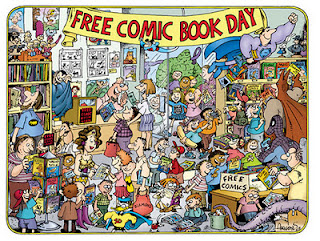Journalists Should Not Ask Scientists About the History Of Science
I sent an email on March 6, 2008 to Timothy Folger. He has not replied, perhaps because of the typo. The text is below.
Mr. Folger
I just read your Discover article "Patently Absurd" and enjoyed it
very much, just like enjoy everything you write.
I have a serious question for you regarding science journalism. Every
time I see an article about the history of physics, I see results of
interviews with physicists, rather than historians of physics. This
seems curious to me. Physicists are experts on how the fundamentals of
the universe work, but if you want information about how the history
of physics played out, wouldn't a historian who specializes in the
subject be a more appropriate source? You are not even required to
know the history of physics to get a Ph.D. in physics, I don't
believe, so how are they experts on the history? It seems to me a bit
like asking a modern day general in the army questions about the
details of the war of 1812.
--
JimDavies http://www.jimdavies.org/
Institute of Cognitive Science
Carleton University


Comments
I think there are two separate threads within science education. One embodies the philosophy you mention - that you don't need to learn the history of science to learn a science. I ran into this with one of my mentors at Tech: he critiqued some of the programs we had then in AI and computer science in general because they taught too much history. In his opinion, it was as useless to try to teach the General Problem Solver in an AI course or to teach FORTRAN in a programming course - instead, he argued, it was better to teach GRAPHPLAN and Java as they were more current. Someone educated in this manner would, indeed, be a bad person to ask about the history of science.
I think this is entirely adequate for a bachelor's level or even a master's level education in a subject. However, I am in the second camp, in that I think that you have to teach the history of a subject to some degree to teach someone how to be a researcher. Research involves developing new ideas, and to know what questions to pursue it is extremely helpful to know the history of the current ideas so you know what blind alleys not to go down --- or which ones to re-open with new promise.
More particularly, in my personal experience studying both AI and physics, there are a fair number of practicing scientists that understand the history of their field in considerable detail - more, for their specific area, than a historian of scientist could easily come to appreciate without learning the subject matter as well as the history. I can point to a fair number of physicists who know a lot about the history of their field - Feynman, Chandrasekharan, and Hawking are a few examples.
So in one sense it is a crapshoot since you don't know the style of the people that educated a specific scientists. But to me I think it's not automatic that a physicist just someone who is an expert on how the fundamentals of how the universe works ... I think they should also be an expert on how we came to believe that it works the particular way that we think it works right now.
First, that scientists should be taught the history of their field as part of their education. I disagree with this but I don't think it's important to my points so I won't get into it.
Second, you suggest that an appreciation of physics is helpful in understanding the history of physics. This is true, and I would expect someone trained in the history of a science to need to learn about that science. Can't I just use your argument in the other direction? That a historian of physics should know physics, so it's fine to interview the historian in a documentary on compemporary string theory? The quesiton is whether or not they do, not whether they should. And physicists, in my opinion, do not have the authority to speak on matters of history, even of their own field.
Third, and I think you imply this more than say it explicitly, many physicists do know the history of their field.
Perhaps they do, but it's only becaue of their leisure-time investigations. My co-advisor Nancy Nersessian knew a whole lot about Maxwell's belief in the ether and how this helped him generate his famous equations. I could be wrong, but I'd be surprised if physicists, in learning Maxwell's equations, learned of the assumptions that went into making it that we've not discarded. Or that evolutionary biologists would know that there were several theories of evolution floating around at Darwin's time, or that Darwin didn't coin the phrase "survival of the fittest."